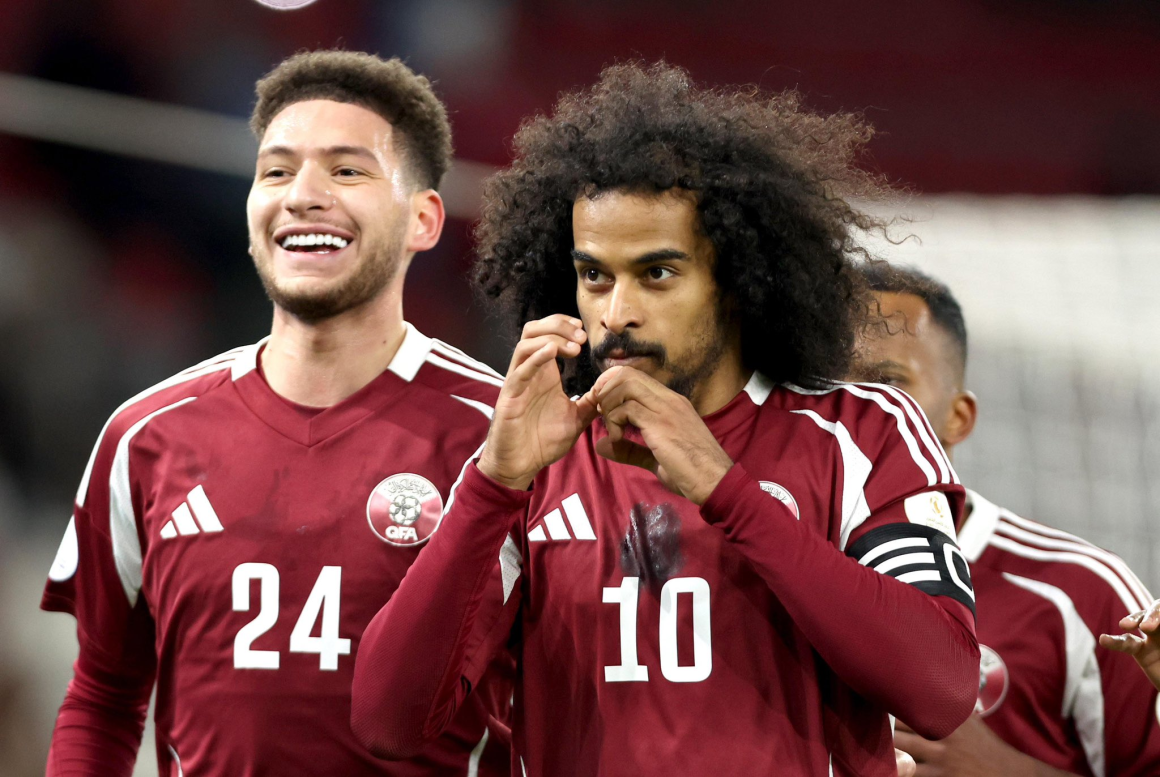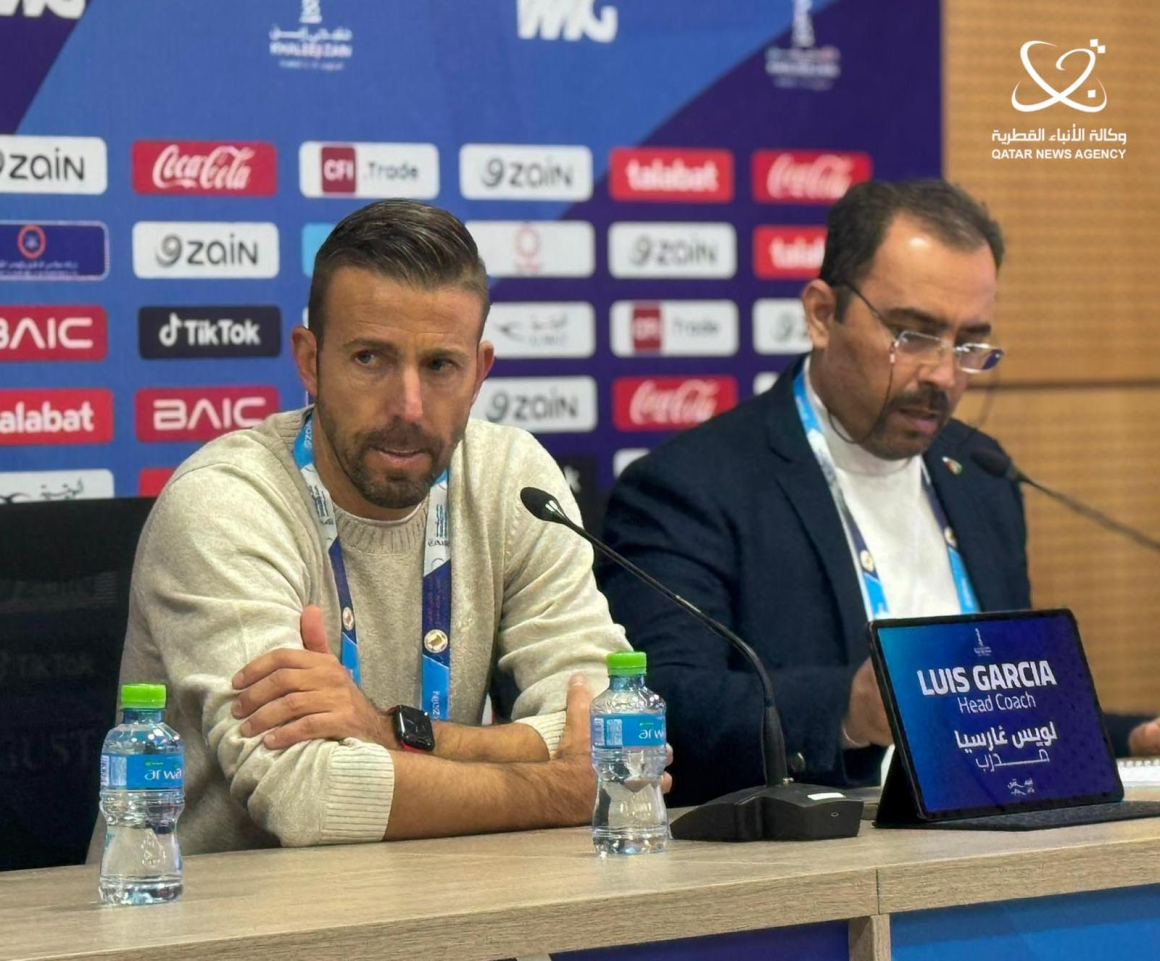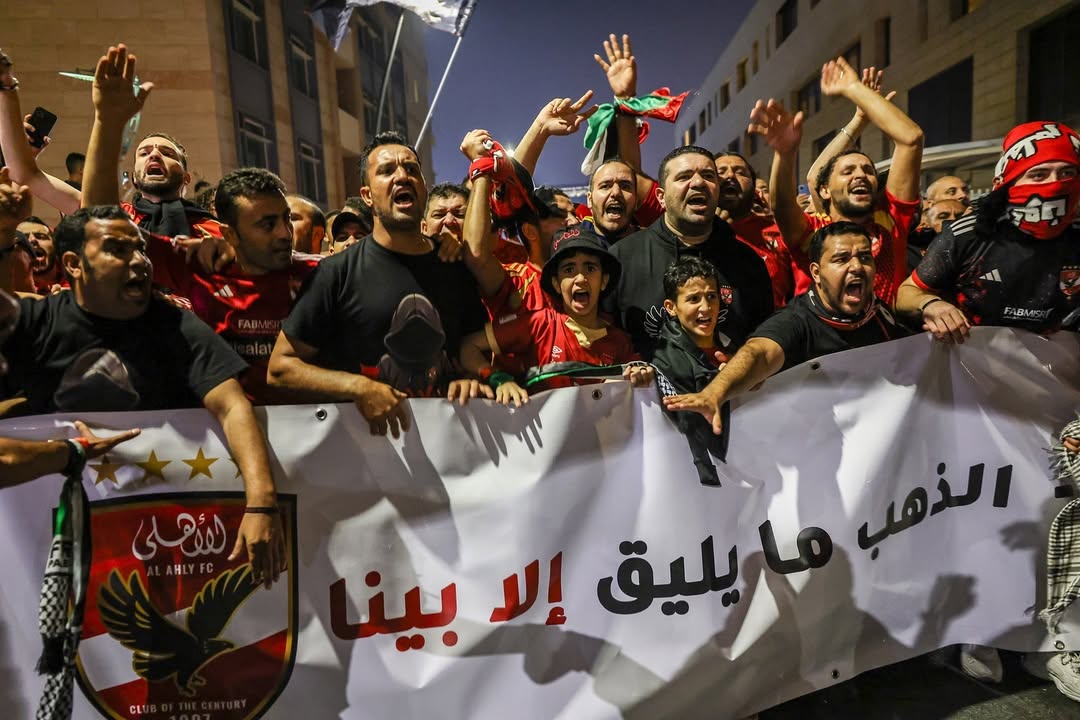Qatar played a 1-1 stalemate against the UAE in Luis Garcia’s first outing as the head coach.
In more ways than one, Qatar’s draw against UAE in the Khaleeji Zain — the Arabian Gulf Cup — opener felt more positive than the mere outcome.
After all, the 1-1 stalemate was “satisfactory”, Luis Garcia later admitted, after leading Al Annabi as the man in charge for the first time. Add to the mix that Qatar managed to score a point against a side that had put eight past them in previous meetings, and Garcia’s words do hold some ground.
Qatar’s performance, beyond the result, at the Jaber Al-Mubarak stadium was certainly an improvement to the 5-0 defeat they suffered at the hands of the same opponents and it matters in the broader context as well.
Al Annabi are in a tricky position — call it transition — after a terrible start to the third round of the 2026 World Cup qualifiers that ultimately led to coach Bartolome Marquez Lopez’s departure which was made official right on the eve of the tournament.
A tight schedule was not the only constraint that Garcia had to manage. The team that travelled to Kuwait is missing crucial cogs of the side that won the Asian Cup, one of the reasons behind the latest slump.
There were five changes to the Qatari side on Saturday, compared to the one that started the recent humiliation against the UAE in November. For comparison, the UAE only had one change in the eleven.
“I have great ambition to achieve something good in the tournament,” Garcia had said before the match, justifying his decision to include some new names in the final squad.
While most of that was reactionary, with the likes of Pedro Miguel, Mohammed Waad, Edmilson Junior, and Abdullah Al-Yazidi missing out due to injuries, he had made calls that committed some senior team players. The old guard of Boualem Khoukhi, Abdelkarim Hassan, Karim Boudiaf, and Abdulaziz Hatem, all of whom featured in the recent qualifiers, were not called up.
There was, however, a major talking point in Garcia’s pre-match talk — the absence of Akram Afif, reportedly due to personal circumstances. An untested squad missing its talisman could mean more dismay for Al Annabi even before kick-off.
Eventually, Afif did not just show up, but started and set things in motion by scoring in the 17th minute from the penalty spot. UAE defender Khalifa Al-Hammadi’s handball while trying to contain Homam Ahmed’s cross came as Qatar’s blessing. It was Afif’s 39th strike in national colours, putting him level with Sebastian Soria’s tally.

The job was far from done, however. While over-reliance on Afif has proved to be a weakness that can be exploited, a bigger one that has loomed is the lack of defensive rigidity.
Qatar came into the match having conceded a goal in each of their last seven encounters, dating back to June in the 2-1 win against India at the Jassim bin Hamad Stadium.
What followed was no short of a calamity. Despite taking the lead against the likes of North Korea, UAE, and Iran, Al Annabi dropped points in each instance — the latter two ending up in 3-1 and 4-1 defeats.
The trend seemed to continue on Saturday when Yahya Al-Ghassani, who ran riot in the 5-0 drubbing of Qatar, dribbled past his defenders to beat Meshaal Barsham at the far post in the first added minute before the first half.
If previous performances were to be repeated, the night would turn out far worse for Garcia and his men. Plus, a couple of missed opportunities from Almoez Ali would have hurt Qatar more if it came to bite them back.
“We started the game perfectly and could have doubled the score, but in the second period of the first half, the UAE had the advantage,” Garcia later admitted. “In the second half, we had dangerous counterattacks. But overall, we are satisfied with what we did.”
Considering the number of new inclusions and the need to adapt to Garcia’s relatively more demanding pressing system, the second half was meek, yet not as bad as the ones that Qatar had played in recent times.
“We achieved a reasonable result,” Tarek Salman, one of the side’s senior-most players, said after the game. “It was better than the previous match with the UAE. Our team includes new members and style, and despite that, it felt cohesive as a team.”
Qatar could not add another shot on target to their tally in a second half that saw both sides struggle to break through to the final third. Garcia said the need of the hour is to navigate the tight schedule, which will see Qatar play Oman on December 24.
“Time is tight between each game, but we have to address the mistakes […] We will work to build on the positive gains from the match in the next matches,” Garcia added.

With the opening game between hosts Kuwait and Oman also ending in a 1-1 draw, all teams in Group A now have one point each, with the next two fixtures serving as all to play for.
The top two will make it to the semi-finals, which does not seem beyond Qatar’s reach. But, succeeding beyond that will require several improvements, which the Spaniard also pointed out.
“We are up to the challenge, and we know the importance of the tournament, this team has already won the Asian Cup, and we will play every match as a final.”







